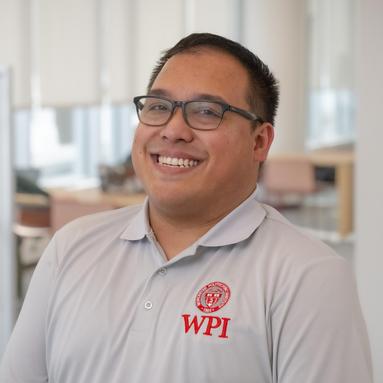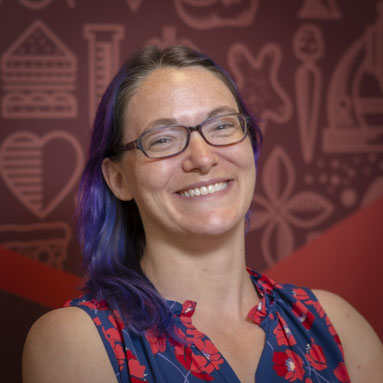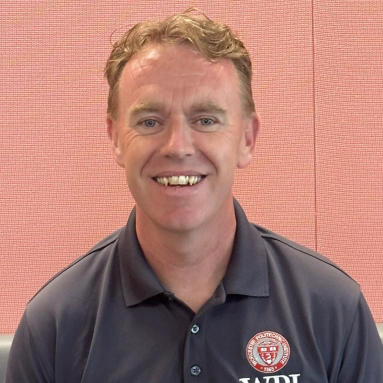The idea to overhaul the academic advising experience for new WPI undergraduate students came to life last spring through a collaborative effort of student-focused professionals across campus. And that provenance seems fitting since the first year of college is, after all, largely about trying new things and connecting with others.
Paul Reilly, assistant dean of student success in the Office of Academic Advising (OAA), started thinking about different approaches to help new students after he learned that many incoming students were having difficulty navigating WPI’s systems, especially over the summer as they prepared to move to campus.
“That was their first direct experience with WPI’s processes, and it was overwhelming for students. I figured there had to be a different way to do this,” says Reilly.
Over the next few months, OAA staff partnered with the Admissions and Student Life offices to launch the new First-Year Welcome Experience—a revamped orientation program to help first-year students acclimate to campus life more smoothly. Last summer, each participating student (and their parent, if desired) was paired with an academic support advisor who talked with advisees about their course preferences and manually registered them for all A- and B-Term classes, a change that eliminated a major source of stress for students early in their time at WPI.

Staff in the Office of Academic Advising
The OAA also looked at how to support faculty advisors, who work one-on-one with students throughout their undergraduate experience. Students are assigned a faculty advisor in their major at the beginning of their first spring semester. Ideally, the faculty advisor will communicate with the student’s OAA advisor and together the pair will guide their undergraduates through their time at the university.
“WPI’s curriculum is very flexible, which is great, but there are many degree requirements and each one has its own set of nuances,” says Jeannine Coburn, assistant professor in the Department of Biomedical Engineering and chair of the faculty Committee on Advising and Student Life. Coburn organized a recent training to help faculty understand those nuances.
“The training provided a one-stop shop where faculty could learn the gist of the campus-wide undergraduate requirements so we can more effectively guide our advisees—because if students are struggling to just navigate courses, they can’t really focus on other tasks,” Coburn adds.








